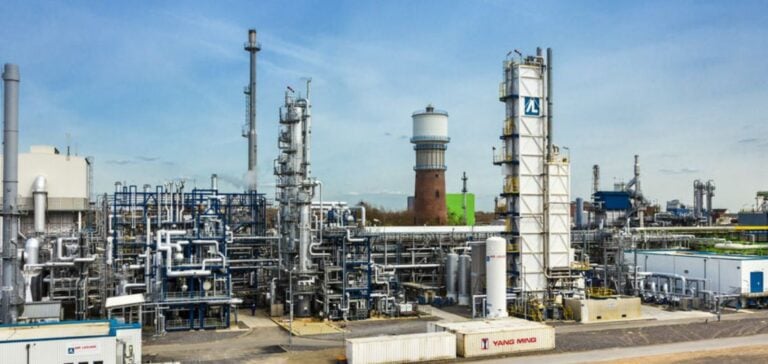The green hydrogen industry in France is experiencing significant growth, with the recent inauguration of several gigafactories, notably in Belfort and Bordeaux. These facilities are essential to achieving the country’s ambitious decarbonization targets, supported by government plans such as France Relance and France 2030, totalling 9 billion euros of public investment.
Strategic Development
New fuel cell and electrolyser plants are at the heart of this strategy, aimed at replacing fossil fuels in various industrial sectors. Hydrogène de France (HDF) recently inaugurated its first fuel cell plant in Blanquefort, near Bordeaux. These cells will be used to convert hydrogen into electricity, essential for maritime transport and renewable energy storage. Among the other major players in this transition, the Symbio plant in the Rhône region, supported by Michelin, Forvia and Stellantis, has made significant progress with its fuel cells. At the same time, five gigafactories are planned in France over the next few years, thanks to massive French and European public subsidies.
Technical and financial challenges
However, the development of this sector is not without its challenges. The technical problems encountered by players such as McPhy, which is inaugurating its first French gigafactory in Belfort, illustrate the difficulties inherent in the technological maturation of these new facilities. Patrick Pouyanné, CEO of TotalEnergies, expressed skepticism about the speed of development of green hydrogen, describing the sector as “embryonic”. Despite these obstacles, the sector continues to develop, with projects such as John Cockerill in Aspach-Michelbach, Elogen in Vendôme, Gen-Hy near Montbéliard, and GenVia in Béziers. These plants will produce green hydrogen using renewable energy sources such as wind, solar and hydro, reducing the carbon footprint compared with industrial hydrogen produced from natural gas.
Prospects and Support Needed
Although these advances are promising, the high cost of green hydrogen production remains a major obstacle to its widespread adoption by industry. Pierre-Etienne Franc, Managing Director of the Hy24 investment fund, stresses the need to provide financial support to end-users to ensure the economic viability of the industry. Political uncertainty, exacerbated by the dissolution of the National Assembly, also complicates the implementation of long-term strategies. Mika Blugeon-Mered, an expert in hydrogen geopolitics at Sciences Po, warns that the government’s revised hydrogen strategy, expected this summer, could be delayed, jeopardizing the necessary support for end-users.
France’s hydrogen industry is at a crucial turning point. Massive investment and technological advances are promising, but require a clear strategy and ongoing support to transform these initiatives into sustainable economic success. European cooperation also remains essential to achieving France’s ambitious decarbonization targets.






















